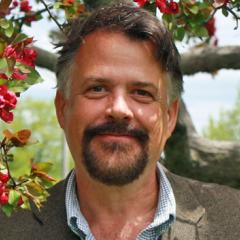Tropical Storm Manuel: Lessons for México and Beyond
For the tourist city of Acapulco, the statistics about Tropical Storm Manuel are staggering, especially given its seemingly unassuming status as a storm and not a cyclone.
60,000 stranded tourists. 23,000 homes without electricity and water. At least 11 deaths. 15 to 25 inches of rain. The only two roads connecting Acapulco to México City ruined by landslides. The international airport flooded.
The rains began on Saturday, 14 September 2013, and continued nonstop through Monday, México’s Independence Day.
Then, as if the old Aztec rain god Tlaloc still hungered for misery, the flash-floods began in the mountains above the city. Homes, vehicles, chairs, bathtubs, appliances, toys, fruits and vegetables, forest debris, and mud – a chaotic jumble of human and nature – gushed down the tropical slopes into lagoons, beaches, and finally the Pacific Ocean. The sliding sludge ripped open sea turtles nests and deposited tons upon tons of debris on Acapulco’s otherwise pristine beach-fronts.
The storm created islands of desperation.
It devastated the privileged and the poor alike. It struck residents and foreigners. It killed young and old. It slashed a sickening swathe across landscape and waterscape both high and low. Money afforded no immunity whatsoever.
The storm has also provided México and all the peoples of the world an opportunity for radical change.
In the aftermath of this menacing storm, we must deliberate about the connection “between me and what I do,” proffered my long-time friend and colleague, Santiago Lobeira, a resident of México City who was trapped in Acapulco with his wife, 3 children, and parents as they prepared to celebrate the national holiday in their beachfront condominium. At one point, he and his children even scavenged the beach wreckage for papayas, corn, and other fruits and vegetables washed ashore. His 10-year-old daughter Sabrina responded, “At least we won’t starve.”
Beyond the utilitarian aspects of the storm, however, what other lessons can we learn from Tropical Storm Manuel?
Lesson #1. In the aftermath of natural disasters, society at-large must step beyond its reliance on ever-diminishing government assistance and employ its considerable resources (e.g., adult and youth volunteerism, corporate investments, and leadership from the affluent) to tackle such events effectively.
One tool in the proverbial toolbox for dealing with calamities is ecologically-aware community education and action. Increasingly, well-off individuals who combine their environmental ethics with their financial capacity are making significant contributions to conservation around the world. In the aftermath of natural disasters like Tropical Storm Manuel, people of means can become heroes of the planet.
Lesson #2. The tonnage of single-use plastics debris from such natural disasters highlights our profligate society and shows unequivocally the toxic nature of our plastics pollution in the environment. Most plastics products are made to last forever yet are designed to throw away. We all know this. Still we say nothing about such unprincipled production. It’s time that we demand the sustainable manufacture of packaging and products in all sectors of industry. Let’s turn our disposable consumption into a benign partnership with the planet.
Lesson #3. Keep development (including hotels and roadways) out of vulnerable areas such as dunes and beaches, lagoons, wetlands, steep forested slopes, floodplains, and other locations subject to the inexorable vicissitudes of nature. As one resident of Acapulco noted, “They built on wetlands, forests, and dunes, and now they are paying the price.” That price in human lives alone should be enough to signal radical change.
Tropical Storm Manuel represents an opportunity for us all to reflect on what Santiago said about the connection “between me and what I do.”
This is what we scientists call the butterfly effect: small changes in one place can result in large differences elsewhere. Let’s ensure that those connections between us and our daily choices are positive, sustainable, and ethical ones.
Scientific research, sensible investments by governments and corporations, and wise business practices can help society at-large move in that direction. But it will be in each of our individual choices that the largest, most lasting differences can be made.
The next time ole’ Tlaloc rains down on Acapulco (or Denver or New York City or New Orleans), let’s make sure it’s a nourishing rain, not one of desperation and destruction.
H. Bruce Rinker, Ph.D.
Ecologist, Educator, and Explorer
